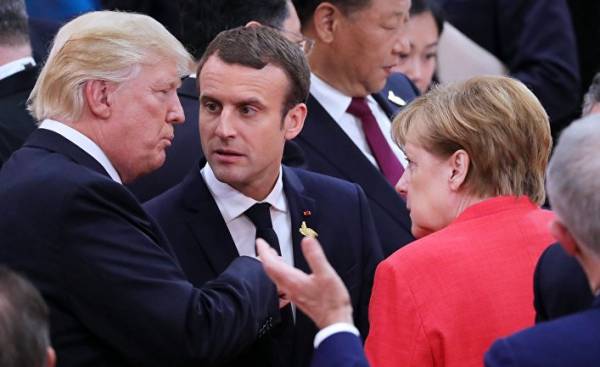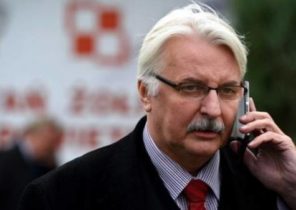
Since the annexation of Crimea by Russia in March 2014, and its intervention in the conflict in Eastern Ukraine, the Western powers led by the US and the EU showed extraordinary toughness in maintaining a unified front when it came to relations with Russia.
Not less remarkable was the desire of the West to use economic tools of pressure on Russia to force it to change policy towards Ukraine.
The sanctions that the West is gradually introduced against Russia, was directed against strategic sectors of the Russian economy, including energy, defense and financial sectors. However, while these sanctions have had a major impact on Russian companies, as a result of their introduction has also hurt many Western companies.
American and European industrial and energy giants suffered significant losses. The sale of French warships and German equipment was suspended. Billions of dollars in investment from companies such as ExxonMobil, Total and Shell, had to be postponed until better times. Hardest-hit companies in those countries which had previously supported close ties with Russia, particularly in Italy, Hungary and Bulgaria.
However, the high economic price that Western companies had to pay for political unity in the question of anti-Russian sanctions in force to this day, makes it even more impressive. Despite economic losses and political benefits of maintaining a United front in relations with Russia were considered much more significant. And the key point in maintaining this unity was the desire of Washington and Brussels to lead a coordinated policy.
However, this unity may soon come to an end.
The U.S. Congress — in its quest to demonstrate that it is taking concrete measures in response to the alleged Russian interference in American elections, and also in their desire to punish Russia for its actions in Syria and other countries are now doing to the West what Russia could not do with March 2014.
Insisting on the introduction of a new package of sanctions in addition to those sanctions already in effect against Russia, the U.S. Congress may inadvertently give the Kremlin what it had hoped since the beginning of the crisis around the Crimea: they drive a wedge between Europe and the United States.
Officials from several influential European countries consider that this new package of anti-Russian sanctions beyond their comfort zone. Instead of targeted sanctions, designed to force Russia to refuse from interference in the Affairs of Ukraine, the US is trying to use sanctions as the main tool of expressing their dissatisfaction with internal and external policy of Russia.
These new sanctions, which cannot be called targeted and accurate — these were the sanctions that the West imposed against Russia in 2014 — are much larger and affect mining and railway companies, and Russian energy projects, which it sells outside its borders.
Those sanctions, which serves to introduce the us Congress, also many challenges: only one bill lawmakers are trying to prescribe measures which must affect the supply of weapons to Syria, the sale of Russian energy resources, as well as on the process of privatization of Russian state enterprises.
Possible idea to adopt such a law, which will allow to struggle with corruption in Russia and to influence its foreign policy, it seems Washington is very attractive, however, some influential politicians of European countries — primarily Germany — I think this new bill is a blatant attempt to capture the economic impact.
For example, some European officials are considering a desire to prevent implementation of the project “Northern stream-2” as an attempt to replace cheap Russian gas for more expensive American liquefied natural gas.
This will not only destroy existing supplies of gas relations between Russia and European countries such as Austria, Germany and Italy, but will also lead to the fact that European industrial companies will pay more than their American competitors. EU officials have already hinted that they might retaliate against the United States if their countries ‘ interests will be threatened.
Despite a sharp public reaction from lawmakers and foreign policy experts, Moscow’s attitude to the adoption of this law is likely to be pretty quiet. Although the sanctions imposed in 2014, has caused the Russian economy some damage, this damage is relatively small, and Russia has adapted to the new economic reality. A new package of sanctions, if approved in its current form, will deal additional damage. However, this damage will be more than offset by the emergence of the first true schism in the transatlantic community in 2014.
In the broader context of geopolitical conflict between Russia and the West, it will undoubtedly be the most significant consequence of the actions of the U.S. Congress.






